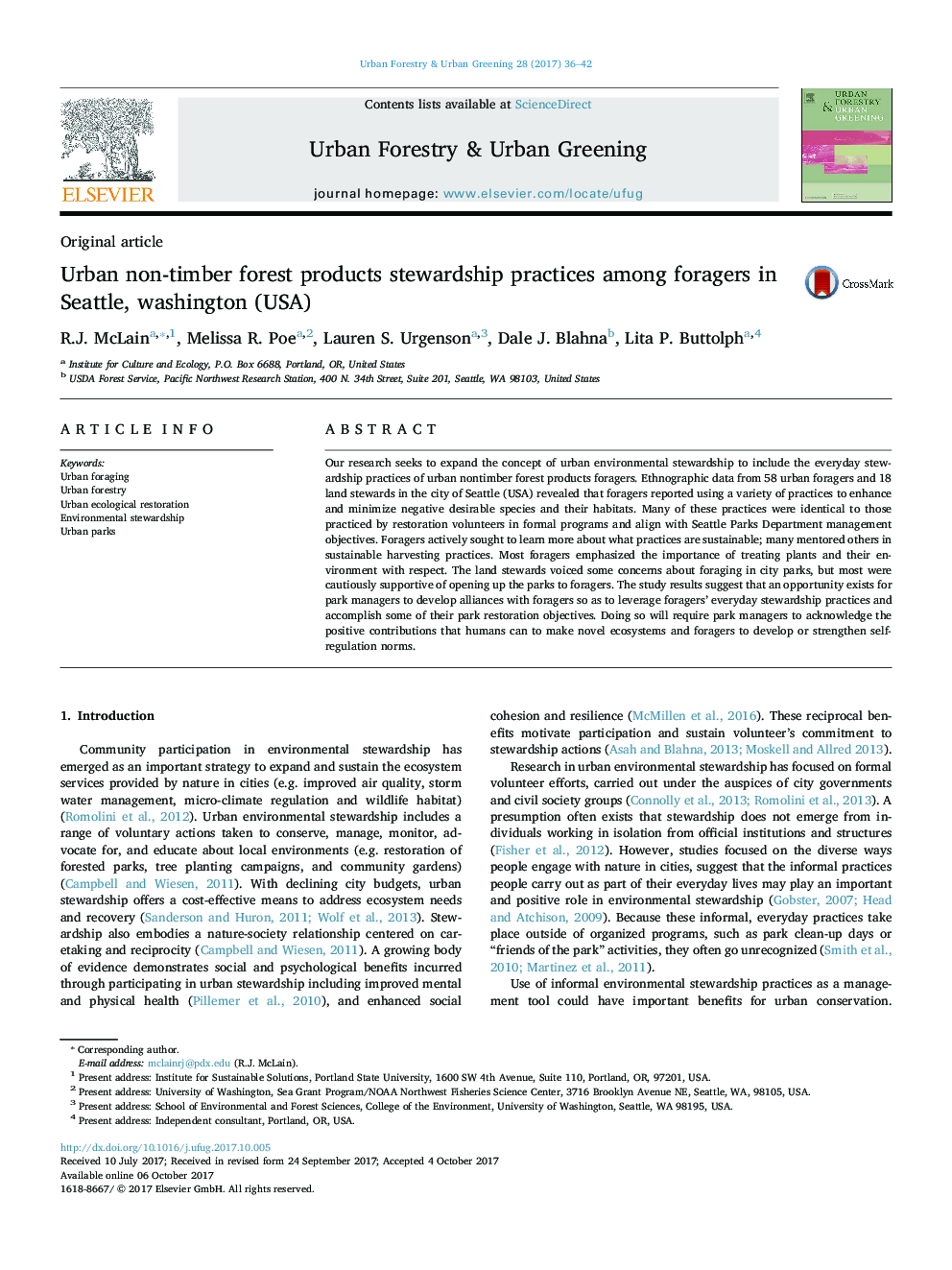| Article ID | Journal | Published Year | Pages | File Type |
|---|---|---|---|---|
| 4759987 | Urban Forestry & Urban Greening | 2017 | 7 Pages |
Abstract
Our research seeks to expand the concept of urban environmental stewardship to include the everyday stewardship practices of urban nontimber forest products foragers. Ethnographic data from 58 urban foragers and 18 land stewards in the city of Seattle (USA) revealed that foragers reported using a variety of practices to enhance and minimize negative desirable species and their habitats. Many of these practices were identical to those practiced by restoration volunteers in formal programs and align with Seattle Parks Department management objectives. Foragers actively sought to learn more about what practices are sustainable; many mentored others in sustainable harvesting practices. Most foragers emphasized the importance of treating plants and their environment with respect. The land stewards voiced some concerns about foraging in city parks, but most were cautiously supportive of opening up the parks to foragers. The study results suggest that an opportunity exists for park managers to develop alliances with foragers so as to leverage foragers' everyday stewardship practices and accomplish some of their park restoration objectives. Doing so will require park managers to acknowledge the positive contributions that humans can to make novel ecosystems and foragers to develop or strengthen self-regulation norms.
Related Topics
Life Sciences
Agricultural and Biological Sciences
Forestry
Authors
R.J. McLain, Melissa R. Poe, Lauren S. Urgenson, Dale J. Blahna, Lita P. Buttolph,
